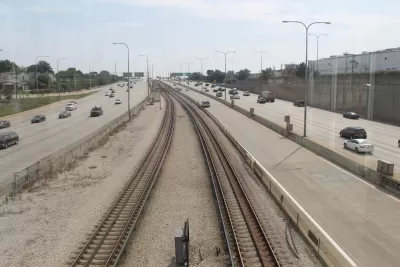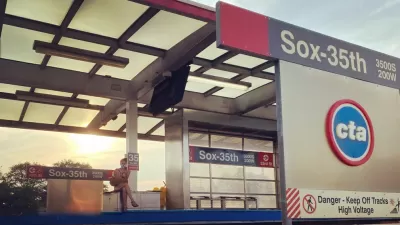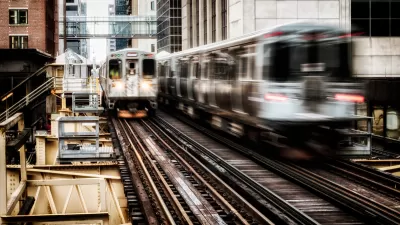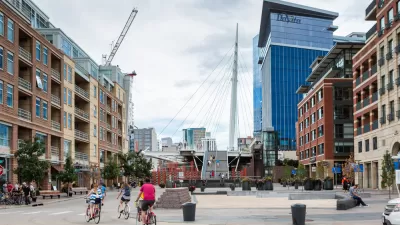With the approval of the ON TO 2050 regional plan, some advocates see more of the same car-centric planning. Perhaps the state can finally shift the discussion.

The Chicago Metropolitan Agency for Planning (CMAP) board recently approved ON TO 2050, "a new comprehensive regional plan that will guide its transportation and community development priorities for the next 32 years," reports Igor Studenkov.
A key aspect of the ON TO 2050 plan, as compared to its predecessor ON TO 2040 plan, is its commitment to 'inclusive growth.'
During an October 5 press briefing, CMAP executive director Joseph Szabo explained that promoting “inclusive growth” – where communities of all sizes and income levels benefit – was a major priority of the planning process. “[CMAP’s] analysis shows regions that are more inclusive have longer, stronger periods of prosperity and shorter periods of stagnation,” he said.
A major aspect of the strategy, Szabo said, is doing more than just determine how to improve transportation access from underserved areas to job sites in other parts of the region. It’s to figure out how infrastructure can be used to encourage more investment and more businesses to come to these communities.
Other priorities laid out in the plan include resilience and an expanded local sales tax base. Studenkov's coverage of the plan includes details on the projects supported in the plan, which include both road and transit projects.
Not everyone is pleased with the direction of the new regional plan, however, as explained in a follow up post by John Greenfield. Greenfield quotes Active Transportation Alliance Executive Director Ron Burke, who "slammed" the plan as more of the transportation planning status quo.
"Chicagoland’s new regional plan, called ‘ON TO 2050,’ has plenty of good ideas on paper to tackle the problem of too many cars and traffic crashes, but it lacks the mechanisms, funding, and leadership to actually implement a new mobility future and move away from the car-centric status quo," Burke said in a statement.
Burke referenced an Active Transportation Alliance analysis claiming that the Chicagoland region is just as car dependent as it was in 1980. "Moreover, driving has increased 4 times faster than the population since 1980, the study found," explains Greenfield.
From yet another article, this one a column by Mary Wisniewski, appears a light at the end of the tunnel that could alter the direction of the political debate: discussions at the state level of "a transportation capital bill to fund badly needed fixes to the state’s roads, bridges and public transit systems."
Wisniewski has advocates and politicians on the record saying that next year's post-election legislative session might finally yield a permanent shift in the state's transportation funding equation.
FULL STORY: CMAP Emphasizes Investment in Underserved Communities in ON TO 2050 Plan

Montreal Mall to Become 6,000 Housing Units
Place Versailles will be transformed into a mixed-use complex over the next 25 years.

Planetizen Federal Action Tracker
A weekly monitor of how Trump’s orders and actions are impacting planners and planning in America.

DARTSpace Platform Streamlines Dallas TOD Application Process
The Dallas transit agency hopes a shorter permitting timeline will boost transit-oriented development around rail stations.

Study: 4% of Truckers Lack a Valid Commercial License
Over 56% of inspected trucks had other violations.

Chicago Judge Orders Thousands of Accessible Ped Signals
Only 3% of the city's crossing signals are currently accessible to blind pedestrians.

Philadelphia Swaps Car Lanes for Bikeways in Unanimous Vote
The project will transform one of the handful of streets responsible for 80% of the city’s major crashes.
Urban Design for Planners 1: Software Tools
This six-course series explores essential urban design concepts using open source software and equips planners with the tools they need to participate fully in the urban design process.
Planning for Universal Design
Learn the tools for implementing Universal Design in planning regulations.
City of Mt Shasta
City of Camden Redevelopment Agency
City of Astoria
Transportation Research & Education Center (TREC) at Portland State University
US High Speed Rail Association
City of Camden Redevelopment Agency
Municipality of Princeton (NJ)





























